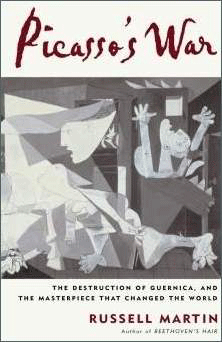February 9, 2010
Studio Audio Guernica

I've been listening to audiobooks in the studio for some time now. This is the latest...

On April 26, 1937, in the late afternoon of a busy market day in the Basque town of Gernika in northern Spain, the German Luftwaffe began the relentless bombing and machine-gunning of businesses, homes and villagers to test a new type of warfare waged from the air at the request of General Francisco Franco and his rebel forces. Three-and-a-half hours later, the village lay in ruins, its population decimated. This act of terror and unspeakable crueltythe first intentional, large-scale attack against a nonmilitary target in modern warfareoutraged the world, and compelled a Spanish painter to respond with artistic fury. Pablo Picasso, an expatriate living in Paris, reacted immediately to the devastation in his homeland by beginning work on the canvas that would become his testament against the horrors of war.One of the audiobooks that I listened to over the weekend was Picasso's War by Russell Martin. I had a general idea of what happened, I had seen the great painting several times at the Reina Sophia in Madrid. But there were a few aspects that I was unaware of that this book brought to my attention:
-That not only was the attack an early exercise in blitzkrieg, but that it was initially meant to be a joint attack with Franco's rebel forces... and the spanish fascists were a no-show.
-Not only that, but Franco's faction denied their involvement initially, and deep into the evolution of the war.
-That this was Picasso's only politically pointed nonverbal artistic statement, more powerful and pointed for it all. This may be just my opinion, and I would be interested in considering someone's rebuttal.
-That after traveling to and fro, and after being in the hands of the Guggenheim for some time, that there was a controversy about whether it should travel to Bilbao or not. And after the hand grenades were planted in Jeff Koon's flowery puppy, much wind fell off the sail of the Basque argument. I think that such a statement of protest of war atrocity is best showcased in the capital of the city that carries the burden of responsibility for it.
(Blogpost in progress)
Posted by Dennis at February 9, 2010 11:49 AM
Leave a comment